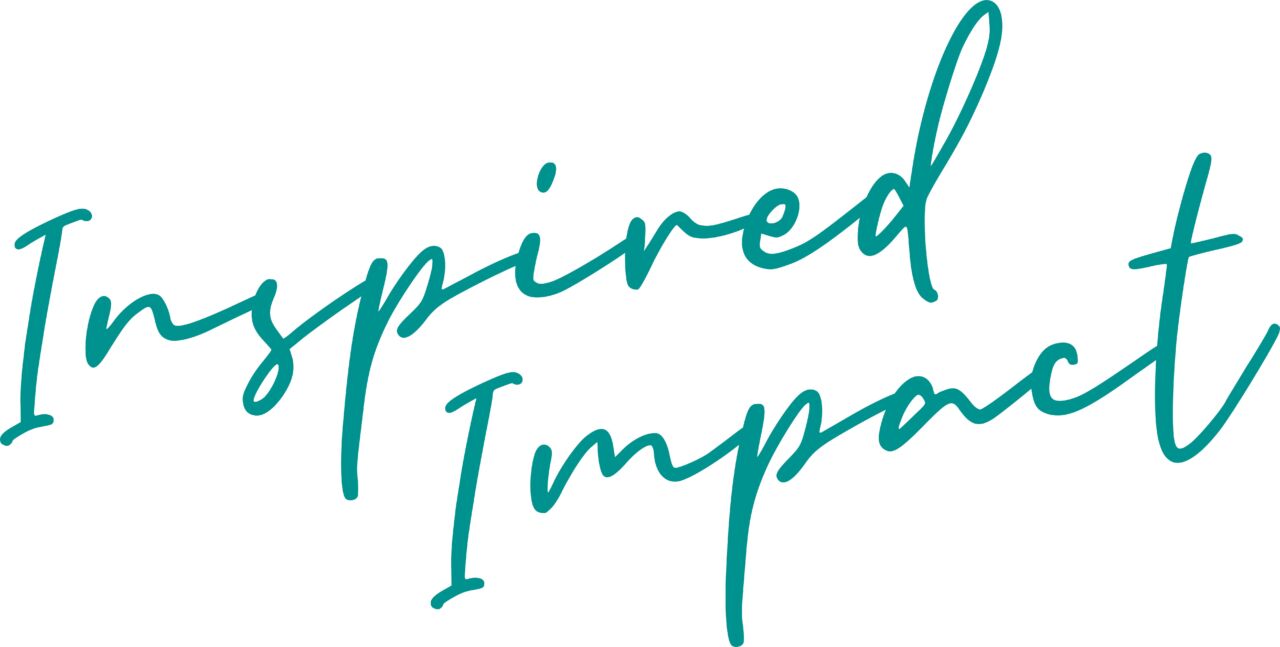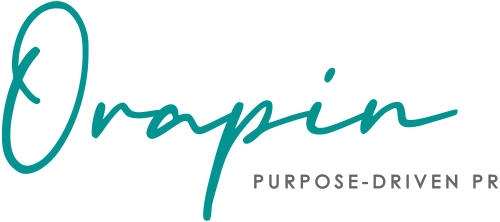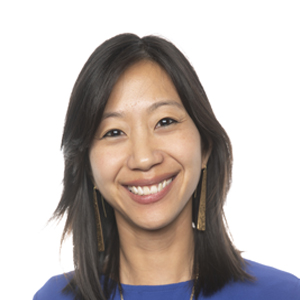
Interviews with purpose-driven leaders who are dedicated to helping others and making a positive impact in the world.
October 24, 2022
Tiffany Yu | Diversability
TELL US, WHO ARE YOU AND WHAT DO YOU DO?
My name is Tiffany Yu and I am the CEO and founder of a social enterprise, Diversability. We call ourselves a community business that’s on a mission to elevate disability pride. We do that in three ways. First with our disability-centered community. Second, we’re focused on increasing the visibility of our community and increasing representation. Third, we engage allies in the conversation. As a function of starting Diversability in 2009, I’ve started to do a lot more speaking and ventured into content creation. I see those as a part of my multi-hyphenate identity.
HOW DID YOU GET HERE?
I’m the youngest daughter of Asian immigrants. My dad is from Taiwan and my mom is a refugee from the Vietnam War. At the age of nine, I was involved in a car accident and acquired a handful of injuries, including permanently paralyzing one of my arms. Later I was diagnosed with post-traumatic stress disorder, which is a type of mental health disability. Around the same time, my dad passed away. As the daughter of Asian immigrants, I had internalized that I should try to hide my disability and not tell anyone about the car accident or what had happened to my dad. So that’s what I did for more than a decade. I moved about feeling very alone, that my story was shameful, diminishing it. There’s a Japanese proverb that says the nail that sticks out gets hammered down. I had internalized that I needed to blend in with the wallpaper and not be a nail that sticks out.
Fast forward to 2009, I was 21 years old and ready to graduate from college. I looked back at my life and realized that I wasn’t really living to my fullest potential because I wasn’t embracing all of the parts of who made me who I was. I became really curious whether there were other people who had similar experiences, who might resonate with mine. Oftentimes when we’re pitching or talking about Diversability, I talk about growing up without a disability community that made me feel empowered in my story. Because I couldn’t find one, I created it myself. It started as a student club at Georgetown University.
In 2015, I started thinking about the disability work that I had done and actually ended up relaunching Diversability, incorporating it as a business, and began to host events again. In 2017, I was in San Francisco for a job, and six months later was fired. I’d been running this passion project and decided I was going to focus on Diversability until I found full-time work. That was in March of 2017, and now here we are with a team of nine and a community that’s grown to more than 70,000. We’re not going anywhere.
WHAT DO YOU STAND FOR? WHY IS THIS WORK IMPORTANT TO YOU?
Our company’s mission is to elevate disability pride. We also talk about increasing disability representation. But I also have a personal mission statement, how can I lead by example and model what it looks like to be the fullest embodiment of yourself, to be unapologetically your most authentic self? I think that this is important for me because I will never forget those 12 years of being a self-imposed nobody. Oftentimes I meet people and they say that I’m so confident. I guess I just want to remind people that it’s a journey that I’m still on. The first line of my Clubhouse bio used to say “I’m a human who’s healing.” I think that’s a huge part of my story, how to just show up and embrace your healing.
WHAT IMPACT ARE YOU MAKING?
To me, there are three ways that we have been very impactful. The one that is most meaningful to me is the impact I’ve made on myself through the creation of Diversability. Through the creation of the organization in 2009, it was the first time that I ever publicly shared my story of the car accident. I think that as a function of creating this community, hearing other people’s stories, and learning about the rich culture and history of the disability community made me really proud of that journey. That was something I so desperately needed for myself.
The second way we are impacting others is through economic self-sufficiency. It’s one of the biggest opportunities in the disability space right now, to ensure that disabled people have enough money to cover their needs and live and thrive. We’ve grown our team to an entirely disabled team of nine. All are paid contractors, including speakers and guest editors. We believe that free labor doesn’t work and that the disability-lived experience is valuable. Sharing a story and having the expertise is worth money. I measure impact by how many people’s lives we’re able to impact directly by putting money back in their pockets. I think as women we’ve always been told to shy away from talking about money, but I actually think that’s what’s kept many disabled people in perpetual poverty.
Our mission is to elevate disability pride. I believe that people have their own disability origin story, and then a second disability origin story, which is a defining moment in their journey when they start to accept disability as a part of their lived experience. Our third big impact happens when those who are new on their disability journey reach that defining moment to share their own story. Being able to watch that transformation in our online community is very impactful. For that person, their life is changed in one way or another.
WHAT (OR WHO) INSPIRES YOU TO DO THIS WORK?
First is nine-year-old Tiffany. I think about her a lot in my work, about how alone she felt, and how ashamed she was that her arm worked differently.
Over the years, I’ve gotten to witness firsthand how amazing and magical the disability community is. I want other people to see what I see. I know it’s possible to build an entirely 100%, disability-owned and operated company. I know that all of our team members are going to be great if they decide to go off into their next chapter. My heart breaks because so many other people didn’t give them the chance, but I’m so glad that they found Diversabiltiy so that they could start or continue to be compensated for the great work that we do. I think that we need to spend more time with many members of our community to not only empower them to figure out what their gifts are but to have society see their gifts as well.
WHAT’S YOUR VISION, YOUR BIG DREAM FOR THE IMPACT YOU WANT TO MAKE?
I think my big dream comes back to that economic self-sufficiency point, but I call it disability-centered economic justice. I think the big dream for me is the ripple effect in terms of real dollars and helping to get more of our community to a point of economic self-sufficiency. I actually think it’s really changed since when we first started, and it still is very much our mission. But if you think of our overall well-being, it’s your mental health, your physical health, and your social health. I think the pandemic really taught us on a global level how important having healthy relationships and social connection is during periods of isolation. When I first started Diversability, we were really tackling that social health part of overall well-being, which was something that had been stripped away from disabled people. I do think that there are still some disabled people who are very isolated and very alone and I hope that they are able to find community, whether it’s through Diversability or not. I often advocate for having many communities to serve different purposes in your life, not just solely depending on one.
WHAT CHALLENGES ARE YOU FACING?
I still find that inner critic Tiffany has made me kind of straddle this line between playing small and being invisible, versus making a huge impact. That leads to the second challenge. For the first couple of years of Diversability, I didn’t think that it would become a business. In 2020 we had the opportunity to participate in Facebook’s Community Accelerator Program. We received $30,000 and were tasked with spending it during the period of the accelerator. At the end, we pitched the impact and the outcomes of being in the accelerator during a regional demo day. We won and received another $25,000 that we used to invest in creating some structures and processes around how we were going to create financial sustainability.
A year ago we launched a membership community and formalized a sponsorships process. We’ve grown and have increased our revenues at the same pace. For us, in terms of achieving that big dream, it would be amazing if we could continue growth from a revenue perspective and also grow it from a team perspective. Even though we pay all of our speakers and team members, I would love to be paying them more and transition some of them into full-time roles. Because of my finance background, I’ve been a bit cautious about growth. We’re growing in a way that a small business would, but I do get really curious about what it might look like if we really invested in scale.
WHAT DO YOU WANT PEOPLE TO KNOW ABOUT YOUR CAUSE AND/OR THE WORK YOU’RE DOING?
Disabled people are human beings. I know that’s probably a strange thing to say as a key takeaway, but I think what I’ve realized is how many of us have been dehumanized in so many ways. People assume that we don’t want to be in a relationship, or we don’t want to own a home, have a job, drive, or get a dog. There are so many human experiences that seem to be stripped away from us as disabled people because others get so fixated on our diagnoses.
Oftentimes I tell people, the first thing to unlearn is that being disabled is a tragic experience. The second thing to learn is that disabled people are human beings who want to have the same human experiences just like everyone else. That leads to a third thing, which is a little bit more aspirational, that disability can be seen as a neutral experience and one that can also be aspirational. I want people to look at me and my work, and want to follow in my footsteps one day.
I think that is the direction that we need, a rebrand for “disability.” It has been ingrained in our society, unfortunately, that disability is a tragic experience. But if we move toward disability as a human experience, then the disability experience can be aspirational.
DO YOU HAVE A FAVORITE QUOTE OR WORDS OF INSPIRATION TO SHARE?
Yes, from Francis Weller. It says, “The work of the mature person is to carry grief in one hand and gratitude in the other. How much sorrow can I hold? That’s how much gratitude I can give.”
That’s a personal quote for me because I think I grew up after the car accident. I believed that the only place that I could be was in grief, darkness, and sadness. I think what I’ve learned along my journey is that by sitting in the depths of that space, I have the capacity to be totally elated and sit in spaces of gratitude and enormous amounts of joy. I just appreciate the humaneness of that quote, that everything exists along a continuum, and in order to experience the highs of life, we also have to experience the lows of them.
HOW CAN OTHERS SUPPORT YOU OR YOUR CAUSE?
I have two calls to action, depending on who you are. One is to join our community, whether it’s our Facebook Group or our premium offering called Diversity Leadership Collective. If you know anyone in the disability community who might be looking for more curated support, resources, community, or opportunities to build their own thought leadership, we’re a PR hype machine for the disability community. If you know anyone who could benefit from that you can always sponsor a membership for them.
The second call to action is that we seek corporate partners or organizations who might be interested in getting their brands in front of our disability-centered audience. They can go to mydiversability.com/collaborate to learn how they can work with us.
At Orapin, we believe those who are working for the greater good should be known, supported, and celebrated. We give purpose-driven organizations that want to do PR the strategy, resources, and support they need to get started so they can increase awareness and maximize their impact. If would like to be featured in INSPIRED IMPACT™, reach out to hello@orapinmarketing.com.


